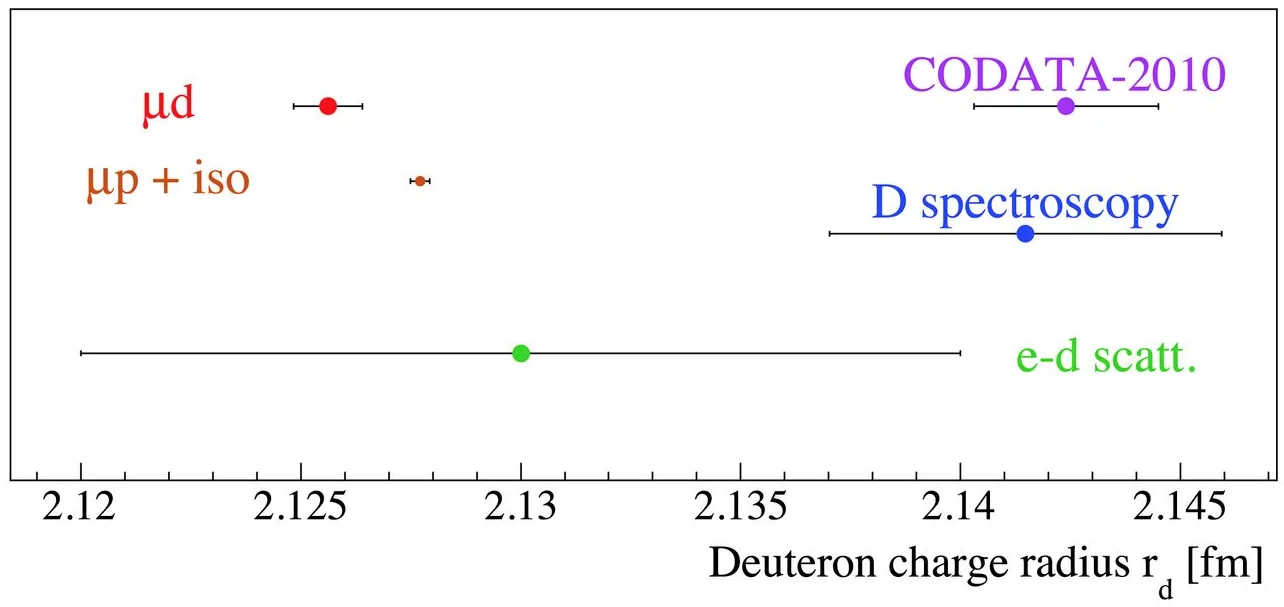The deuteron is the simplest compound nucleus, composed of one proton and one neutron. Deuteron properties such as the root-mean-square charge radius rd and the polarizability serve as important benchmarks for understanding the nuclear forces and structure. Muonic deuterium μd is the exotic atom formed by a deuteron and a negative muon μ-. We measured three 2S-2P transitions in μd and obtain rd = 2.12562(78) fm, which is 2.7 times more accurate but 7.5σ smaller than the CODATA-2010 value rd = 2.1424(21) fm. The μd value is also 3.5σ smaller than the rd value from electronic deuterium spectroscopy. The smaller rd, when combined with the electronic isotope shift, yields a “small” proton radius rp, similar to the one from muonic hydrogen, amplifying the proton radius puzzle.
Reference: Pohl, R., Nez, F., Fernandes, L., et al., Science 353 (2016), 669
Read full article: here


